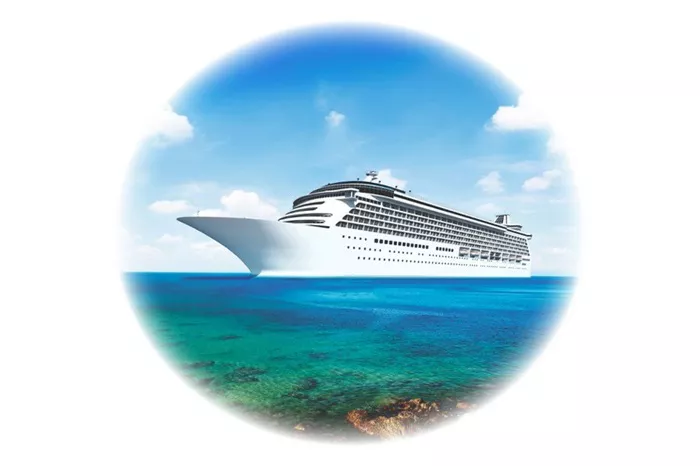Traveling is an exciting adventure, but it comes with its own set of risks. To mitigate these risks, holiday insurance, also known as travel insurance, is essential. It provides peace of mind by covering unforeseen events that can disrupt your travel plans. This essay explores the different types of travel insurance coverage available, destination-specific requirements, policy details, cost comparisons, customer reviews, the claims process, and the importance of accessible contact information.
Types of Coverage
Understanding the various types of coverage is crucial when selecting holiday insurance. Here are the primary types of coverage offered by travel insurance policies:
Trip Cancellation
Trip cancellation insurance reimburses you for pre-paid, non-refundable travel expenses if you need to cancel your trip for a covered reason. Common reasons include illness, injury, death of a family member, natural disasters, or severe weather. Some policies also cover cancellations due to work reasons or terrorist incidents at your destination. This type of insurance is invaluable as it protects your investment in your travel plans.
Medical Expenses
Medical expenses coverage is perhaps the most critical component of travel insurance, especially when traveling abroad. It covers the cost of medical treatment if you fall ill or get injured during your trip. This coverage can include hospital stays, surgeries, doctor visits, and prescription medications. It’s essential because many countries do not have reciprocal health agreements with other nations, and medical bills can be exorbitant.
Emergency Evacuation
Emergency evacuation coverage pays for transportation to the nearest adequate medical facility in the event of a medical emergency. This can include air ambulance services, which are often very expensive. Additionally, this coverage may pay for your return to your home country once you’re stabilized. For travelers going to remote or underdeveloped areas, this coverage is particularly important.
Baggage Loss or Delay
Baggage loss or delay insurance provides compensation if your luggage is lost, stolen, or delayed. This coverage can reimburse you for the value of your lost belongings or the cost of essential items you need to purchase while waiting for your delayed luggage. Given the frequency of baggage mishandling by airlines, this coverage can save you significant inconvenience and expense.
Destination-Specific Information
Different destinations may have specific requirements or recommendations for travel insurance. Here are some key considerations:
Europe
Travelers to Europe, especially those visiting multiple countries within the Schengen Area, are often required to have travel insurance that includes medical coverage of at least €30,000. This is a visa requirement for many non-EU nationals. Additionally, the cost of medical treatment can vary widely across European countries, making comprehensive medical coverage essential.
United States
Medical costs in the United States are notoriously high. Even minor treatments can result in substantial bills. Therefore, travelers to the U.S. should ensure their travel insurance includes high medical expense limits. Also, some U.S. destinations are prone to natural disasters such as hurricanes, which may necessitate coverage for trip cancellations or interruptions.
Asia
When traveling to Asia, it’s important to consider the diverse healthcare standards and costs. Countries like Japan and Singapore have high medical costs, similar to the U.S., while others may have less expensive but varied quality of care. Moreover, many Asian countries are popular for adventure tourism, so insurance that covers activities like trekking or scuba diving is recommended.
Australia and New Zealand
Australia and New Zealand are popular for their outdoor activities and adventure sports. Travelers should look for insurance policies that cover these activities. Additionally, medical care in these countries is of high quality but can be costly for non-residents.
see also:how much is jet2 holiday insurance?
Policy Details
When selecting a travel insurance policy, it is crucial to thoroughly understand the terms and conditions, including coverage limits and exclusions. Here are some important aspects to consider:
Coverage Limits
Each type of coverage within a travel insurance policy will have specific limits. For example, a policy might cover up to $10,000 for trip cancellations, $100,000 for medical expenses, and $500 for baggage loss. It’s essential to assess whether these limits are adequate for your travel plans and potential risks.
Exclusions
Exclusions are situations or conditions that are not covered by the insurance policy. Common exclusions include pre-existing medical conditions, injuries sustained during high-risk activities (unless additional coverage is purchased), and losses due to war or terrorism. Carefully reviewing these exclusions can prevent unpleasant surprises during a claim.
Pre-Existing Conditions
Some policies offer coverage for pre-existing medical conditions if certain conditions are met, such as purchasing the insurance within a specified time frame from the initial trip deposit. This is particularly important for travelers with chronic health issues.
Adventure and Sports Coverage
Standard travel insurance policies often exclude coverage for injuries sustained during high-risk activities. If you plan to engage in adventure sports such as skiing, scuba diving, or mountaineering, ensure your policy includes specific coverage for these activities, often available as an add-on.
Cost Comparison
Travel insurance costs can vary widely based on the provider, coverage limits, duration of the trip, and the traveler’s age and health. Here’s a comparison of costs for different policies and providers:
Basic Policies
Basic travel insurance policies, which typically cover trip cancellations, medical expenses, and baggage loss, can cost between 4-10% of the total trip cost. For example, a $5,000 trip might have a basic policy costing $200-$500.
Comprehensive Policies
Comprehensive policies that include higher coverage limits, emergency evacuation, and additional features like rental car damage and 24/7 assistance can range from 8-15% of the total trip cost. A $5,000 trip might thus have a comprehensive policy costing $400-$750.
Provider Comparison
Allianz Global Assistance: Known for robust coverage options and a comprehensive range of policies. Prices are on the higher end but come with high customer satisfaction ratings.
Travel Guard by AIG: Offers a variety of customizable plans, making it easier to find coverage that fits specific needs. Costs are mid-range, with good customer service reviews.
World Nomads: Popular among adventure travelers, offering coverage for a wide array of activities. Prices are competitive, especially for younger travelers.
Squaremouth: A comparison site that allows travelers to compare policies from different providers. It often highlights cost-effective options with reliable coverage.
Customer Reviews
Customer reviews provide valuable insights into the reliability and effectiveness of travel insurance providers. Here’s an overview based on aggregated customer feedback:
Allianz Global Assistance
Customers generally praise Allianz for its comprehensive coverage and efficient claims process. Many reviews highlight the company’s responsive customer service and ease of policy purchase. However, some users have noted higher premium costs compared to other providers.
Travel Guard by AIG
Travel Guard receives positive feedback for its wide range of customizable policies and helpful customer support. Customers appreciate the clear communication and prompt resolution of claims. Some negative reviews mention delays in claims processing.
World Nomads
World Nomads is highly rated for its adventure activity coverage and user-friendly online platform. Many travelers appreciate the straightforward claims process and detailed policy descriptions. However, some customers have reported issues with claim denials for specific activities not explicitly covered.
Squaremouth
Squaremouth is praised for its transparency and ease of comparing multiple providers. Users find the customer reviews and ratings on the platform helpful for making informed decisions. Negative feedback occasionally mentions discrepancies between advertised and actual coverage.
Claims Process
Understanding the claims process is essential to ensure a smooth experience if you need to file a claim. Here’s a typical process:
Documentation
To file a claim, you’ll need to provide various documents, which may include:
- Proof of travel (e.g., itineraries, tickets)
- Receipts for pre-paid expenses (e.g., accommodation, tours)
- Medical records and receipts (for medical claims)
- Police reports (for theft or loss claims)
- Airline reports for baggage delay or loss
Submission
Claims can usually be submitted online, by mail, or via the insurance provider’s app. It’s important to complete all required forms and attach the necessary documentation. Some providers offer 24/7 support to assist with the claims process.
Time Frames
Insurance policies typically specify a time frame within which you must file a claim, often within 30-60 days of the incident. Prompt submission ensures a faster resolution. The time frame for the claims processing can vary; while some claims are resolved within a few days, others might take several weeks, depending on the complexity and completeness of the documentation provided.
see also: Does holiday insurance cover cancelled flights?
Contact Information
Having accessible contact information for your insurance provider is crucial, especially during emergencies. Here’s what you should ensure:
Emergency Assistance
Most reputable travel insurance providers offer 24/7 emergency assistance hotlines. These hotlines can provide immediate support for medical emergencies, travel disruptions, and evacuation needs. Ensure you have these contact details saved and easily accessible.
Customer Service
In addition to emergency assistance, general customer service contact information should be readily available. This includes phone numbers, email addresses, and possibly live chat options. Good customer service can help with policy questions, claims assistance, and general inquiries.
Claims Support
Dedicated claims support lines or email addresses ensure that your claim inquiries are handled by specialized personnel. Having direct access to claims support can expedite the process and provide clarity on documentation requirements and claim status.
Conclusion
Selecting the right holiday insurance involves understanding the types of coverage available, considering destination-specific requirements, and carefully reviewing policy details, including coverage limits and exclusions. Comparing costs across different providers and considering customer reviews can help identify the best value and most reliable coverage. Understanding the claims process and having accessible contact information ensures that support is available when needed.
By taking these factors into account, travelers can make informed decisions, ensuring they are adequately protected and can enjoy their trips with peace of mind. Holiday insurance is an investment in your travel security, offering protection against
FAQs about Travel Insurance
1. How Long Before a Holiday Do I Need Insurance?
It’s advisable to purchase travel insurance as soon as you book your holiday. This ensures you are covered for any unexpected events that might occur before your trip, such as trip cancellations, medical emergencies, or travel delays. Many travel insurance policies also offer coverage for pre-trip issues, so the earlier you buy it, the better protected you are.
2. Is Annual Travel Insurance Worth It?
Annual travel insurance can be worth it if you travel frequently, typically more than two or three times a year. The benefits include:
Cost Savings: Annual plans can be more cost-effective than buying separate policies for each trip.
Convenience: One policy covers all trips within the year, reducing the hassle of purchasing insurance each time you travel.
Comprehensive Coverage: Annual policies often provide broader coverage options.
Evaluate your travel frequency, destinations, and the coverage you need to determine if an annual policy is a good fit for you.
3. Is Allianz Good Travel Insurance?
Allianz is considered a reputable provider of travel insurance, offering a variety of plans to suit different needs. Key benefits of Allianz travel insurance include:
Comprehensive Coverage: Offers protection for trip cancellations, medical emergencies, lost luggage, and more.
Global Assistance: Provides 24/7 assistance worldwide, helping travelers handle emergencies.
Flexible Plans: Multiple plan options to cater to different types of travelers, including single-trip and annual policies.
Customer reviews and ratings often highlight Allianz’s reliability and customer service, but it’s important to compare policies and read the fine print to ensure it meets your specific needs.
4. What Is the Most Common Type of Travel Insurance?
The most common type of travel insurance is comprehensive travel insurance, which typically includes:
Trip Cancellation/Interruption Coverage: Reimburses prepaid, non-refundable expenses if your trip is canceled or interrupted due to covered reasons.
Medical Coverage: Covers medical emergencies and expenses incurred while traveling.
Emergency Evacuation/Repatriation: Covers the cost of emergency medical evacuation and repatriation.
Lost/Delayed Baggage: Provides reimbursement for lost, stolen, or delayed baggage and personal items.
Travel Delay: Covers additional expenses incurred due to travel delays.
You Might Be Interested In





















